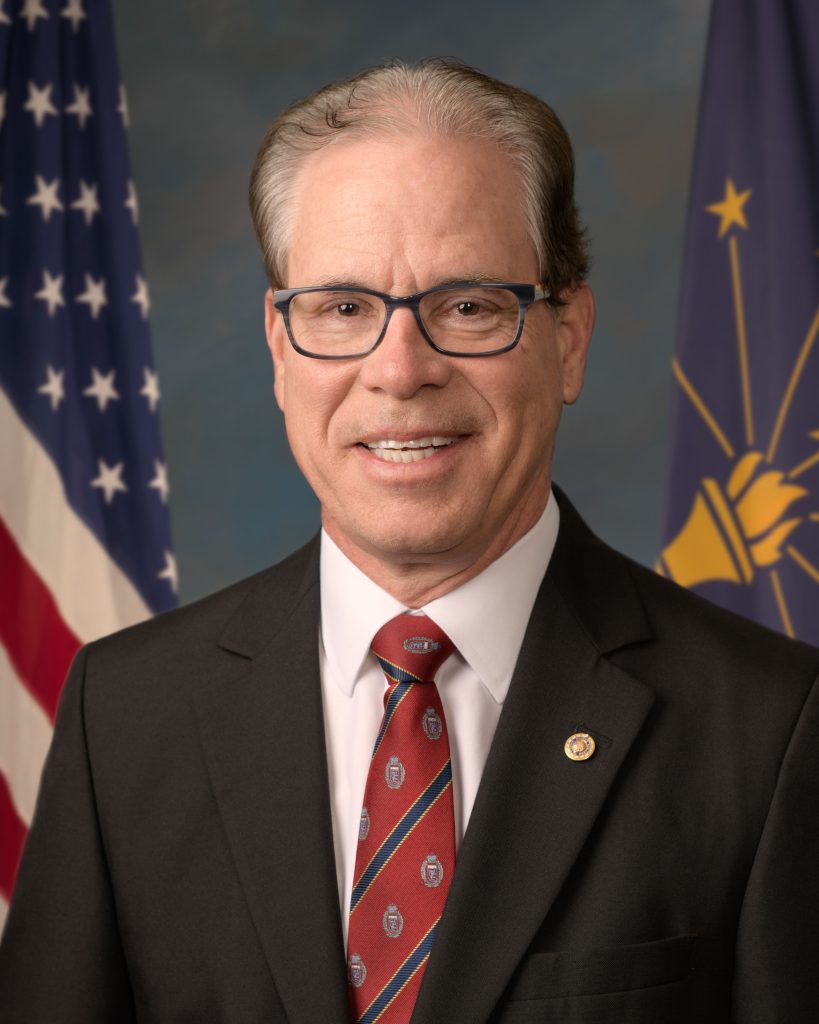Late last week, Indiana Sen. Mike Braun (R) submitted a letter to Ginnie Mae president Alanna McCargo asking about what he identified as recent bouts of instability in both the Home Equity Conversion Mortgage (HECM) and HECM-backed Securities (HMBS) programs, which stemmed from the collapse of a major lender and challenges that Ginnie Mae has described in maintaining a large portfolio of reverse mortgages.
To get a better idea of what prompted the letter and his interest in the reverse mortgage program, RMD reached out to Braun’s office with a series of questions about his perspectives.
‘Red flags’ and OIG inquiry
When asked about what first caused the senator to pay more attention to HECM and HMBS program issues, he explained that the late 2022 failure of Reverse Mortgage Funding (RMF) and the subsequent assumption of is reverse mortgage portfolio by Ginnie Mae were major influences toward his decision to inquire about the program’s challenges.
“RMF’s failure raised serious red flags,” Sen. Braun said in an email to RMD. “The scope of this failure is glaring, comprising 36 percent of all existing HECM loans at the time. I am seeking clarity about Ginnie Mae’s actions in dealing with this distressed issuer and their actions to fix underlying programmatic problems.”

In late 2023, the U.S. Department of Housing and Urban Development (HUD) Office of the Inspector General (OIG) announced that it was initiating an inquiry into how Ginnie Mae monitored RMF, as well as Ginnie Mae’s extinguishment of the failed lender from its HMBS program. OIG Rae Oliver Davis said at the time that the inquiry was being initiated “because extinguishing issuers and seizing their portfolios places significant stress on Ginnie Mae’s operations.”
When asked why he was not willing to wait for the OIG to finish its own inquiry before making his own overtures, Braun said that he feels like waiting may not be an option.
“The timing is important as Ginnie Mae explores improvements to the HMBS program,” he said. “The Senate Aging Committee strives to protect seniors and prioritizes oversight of aging-related issues, like reverse mortgages, and my letter highlights information that is vital to the longevity and stability of the program.”
Additional scrutiny, bipartisan potential
In his letter, Braun alluded to the potential for additional “congressional scrutiny” related to the oversight of the federally backed reverse mortgage program. When asked to expand on that thought, Braun explained that additional transparency into an important event like the RMF collapse is necessary.
“There needs to be more information on their dealings with RMF as it fell into distress,” Braun said. “It’s also important to know about the RMF assets that Ginnie Mae is now servicing, since they have never extinguished an HMBS portfolio previously. We need to have congressional oversight over their efforts to improve troubled issuers’ management practices and their proposals to improve liquidity in the HMBS program.”
With both the House of Representatives and the Senate having such narrow divides along party lines, the potential for added partisanship — especially headed into a hotly contested presidential election — remains high. RMD asked Braun if he feels this issue could descend into the same kind of pattern, but he seemed to be open to the idea of both parties coming together to address HECM and HMBS program challenges.
“It’s a nonpartisan issue,” he said. “While I sent the letter alone, there is a great opportunity to work with the other side of the aisle if further action occurs.”
He added that it’s important for the industry itself to be present during such discussions.
“Transparency is vital to the function of the HECM/HMBS program, and it’s important for Ginnie Mae to make sure Congress and industry professionals are at the table when it’s time to make decisions,” Braun stated.